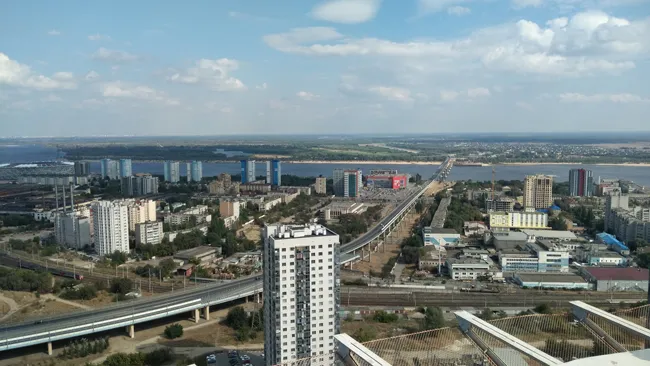
The Russian government is starting a massive programme of building bypasses around the country’s biggest cities during this financial year. The aim is to address the problems of traffic jams and speeding traffic on federal routes, according to recent statements by the Russian Presidential Administration and some senior officials from the Ministry of Transport According to Evgeny Ditrich, the newly appointed Russian minister of transport, the old idea of building roads around Russia’s largest cities then became one of the main strategies for an updated state strategy, in the field of roads and road building. This plan is known as “For the development of road industry in Russia by 2030”.
The initiative of building bypasses for Russia's largest cities was first put forward during the Soviet era.
According to Evgeny Ditrich, about 50 years ago, such a proposal was included in the programs for the development of the road network in the USSR in that period of time, however, many of the ideas were never implemented.
After the collapse of the USSR, Igor Levitin, Russia's former minister of transport at the beginning of the 21st century, promised to build such bypasses for all cities with a population exceeding 1 million people, followed at the next stage for cities with 100-200,000 people.
According to the latest statements by an official spokesman of the Federal Road Transport Agency (
Implementation of these plans will comply with the goals set by the state strategy which involve increasing the traffic speed between the centres of urban areas that have a population of more than 1.5 million people. At the same time another major goal of the strategy involves solving the overload problems of Russia's major highways, including federal routes, at peak times.
Finally, building bypasses, according to state plans, allow an increase in travel speeds on the busiest sections of federal highways of 15%.
In the meantime, Russia federal highways can even pass through the city centres. This is unlike the developed western countries, where major highways usually do not cross the city.
Analysts at the Russian Association of Road and Transport Builders (RARTB) believe this is an indicator of the backwardness of Russia’s road network. According to the analysts, there are no full-fledged transit routes around such major cities in Russia as Voronezh, Volgograd, Kostroma, Krasnodar, Novosibirsk, Ufa, Elista, Rostov-on-Don, Togliatti, Yaroslavl, Kemerovo, Tyumen and some others.
Currently, work is being carried out to construct a bypass for the city of Novosibirsk, a provincial capital in Russian Siberia. However, the project is still at the initial stage.
Analysts from RARTB explained that building bypasses is a very slow-moving process, while the volume of funds, allocated from the Russian federal budget for these needs is rather limited. In this regard, part of the funds for the implementation of these projects will be allocated from the Russian regional budgets and will be provided by private investors.
According to a spokesman for Rosavtodor, many of the projects have already undergone all the state examinations, while their implementation should start shortly.
It is planned, at the initial stage, that bypasses will be built for such large Russian cities as Volgograd, Nizhny Novgorod and Orenburg.
The government believes participation in such projects will interest private investors. However, in addition to state procurements, the only working mechanism for returning investments for investors could be concession agreements.
It is planned that the concession model (along with a public-private partnership scheme) will be used during the building of planned bypasses for Khabarovsk, Ufa and Perm, as well as western and eastern high-speed diameter roads in St Petersburg.
The largest reconstruction and expansion project is probably the Central Ring Road, the highway that is currently being built in Moscow Oblast, which should redirect transit cargo flows from Moscow's outbound routes and the Moscow Ring Road. The cost of the project is estimated at RUB 300 billlion (US$5 billion), while its completion is scheduled for 2022.
At the same time, analysts also warn that building bypasses can be associated with land disputes. This is because land around cities can often be divided into small plots with many different owners. As a result, negotiations for buying the land can be complex.









